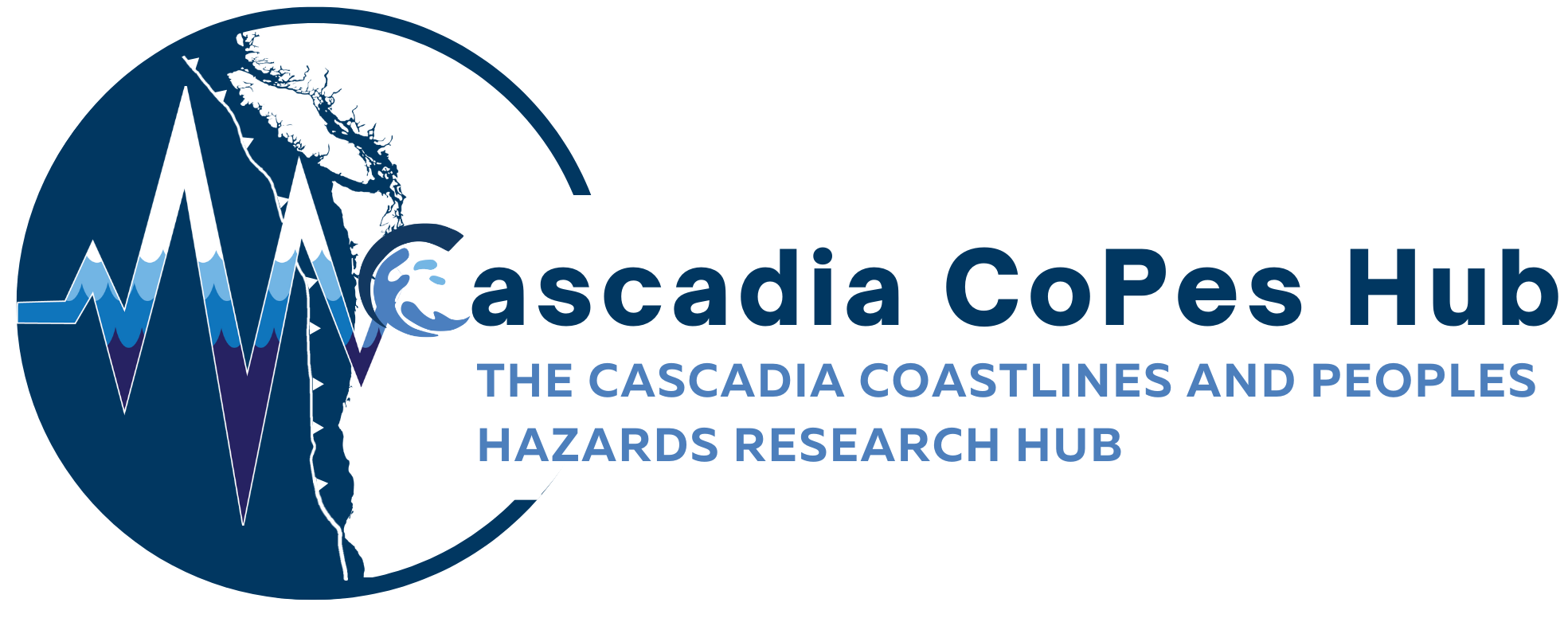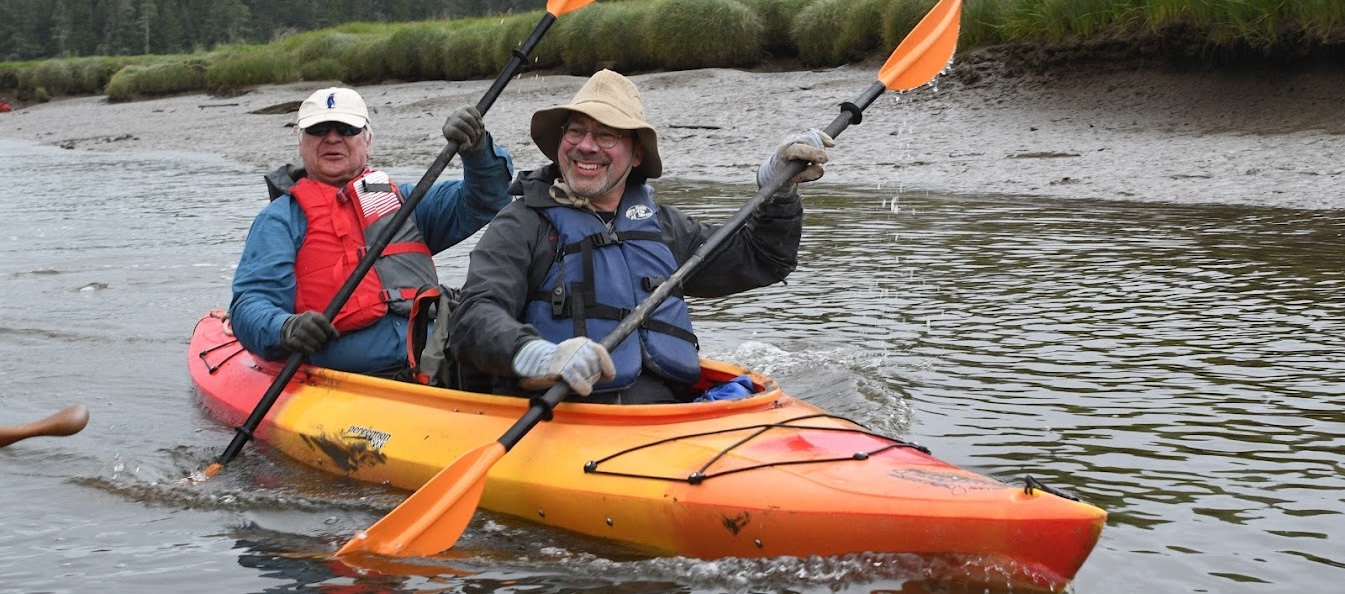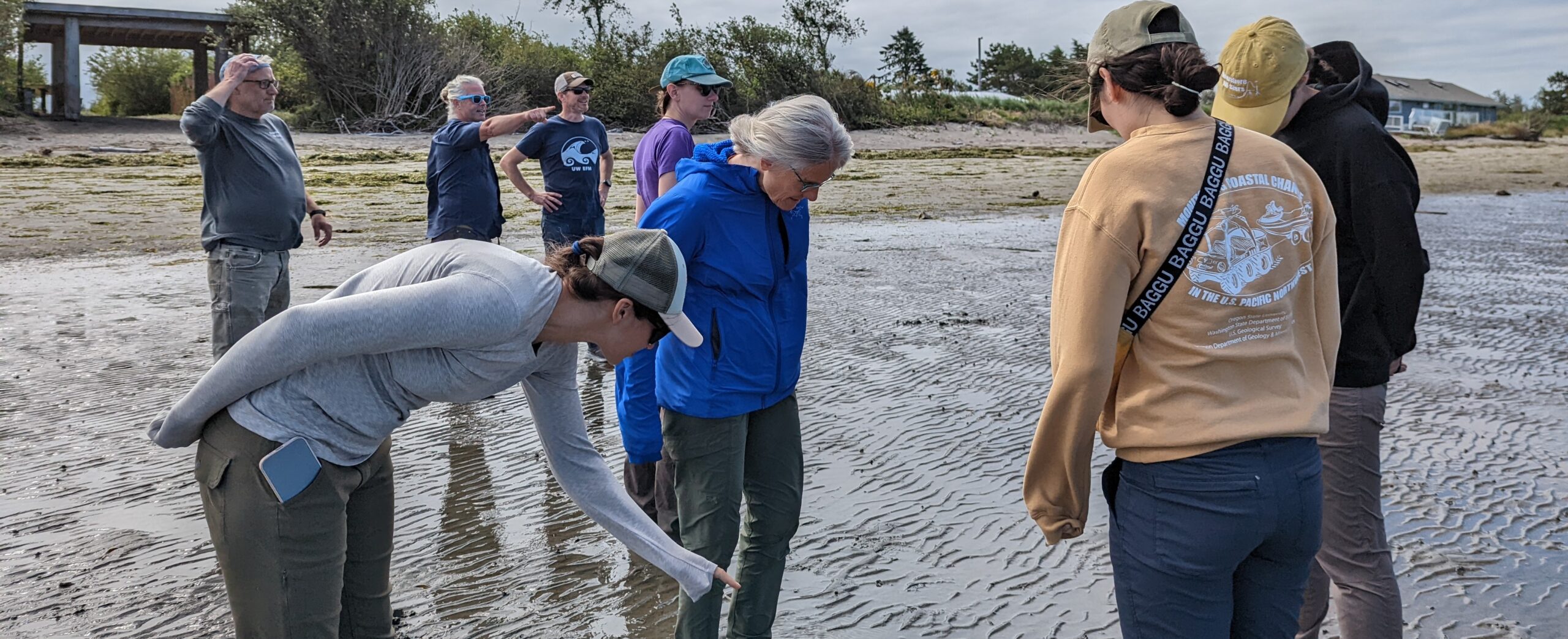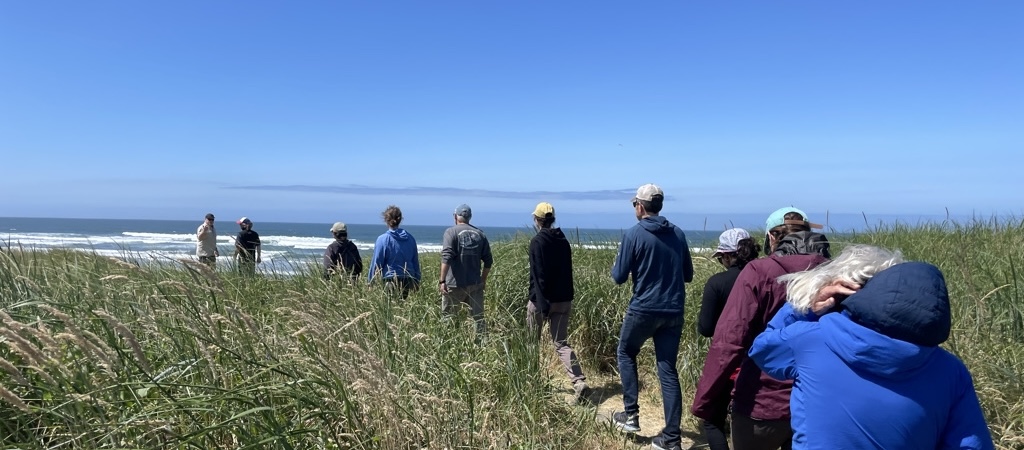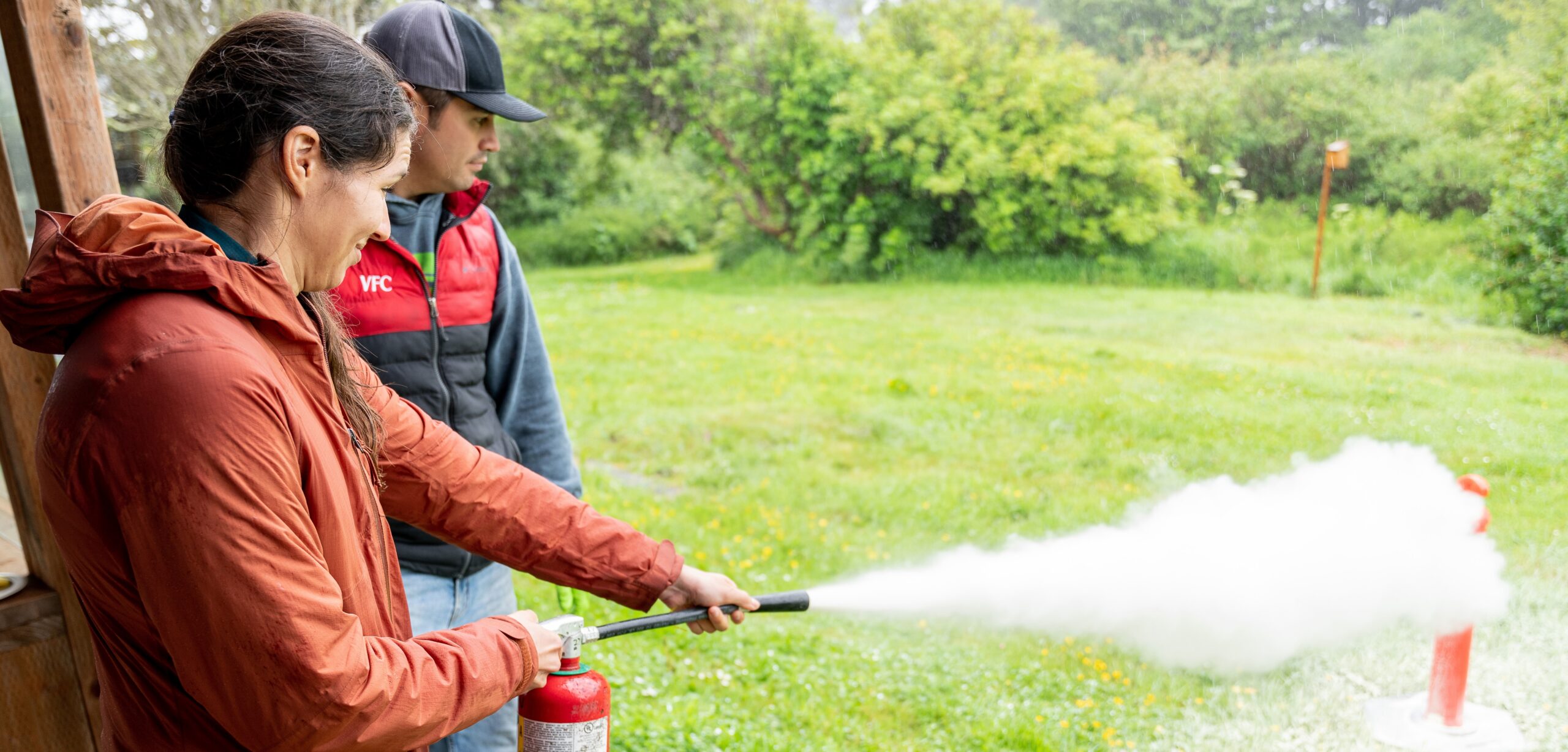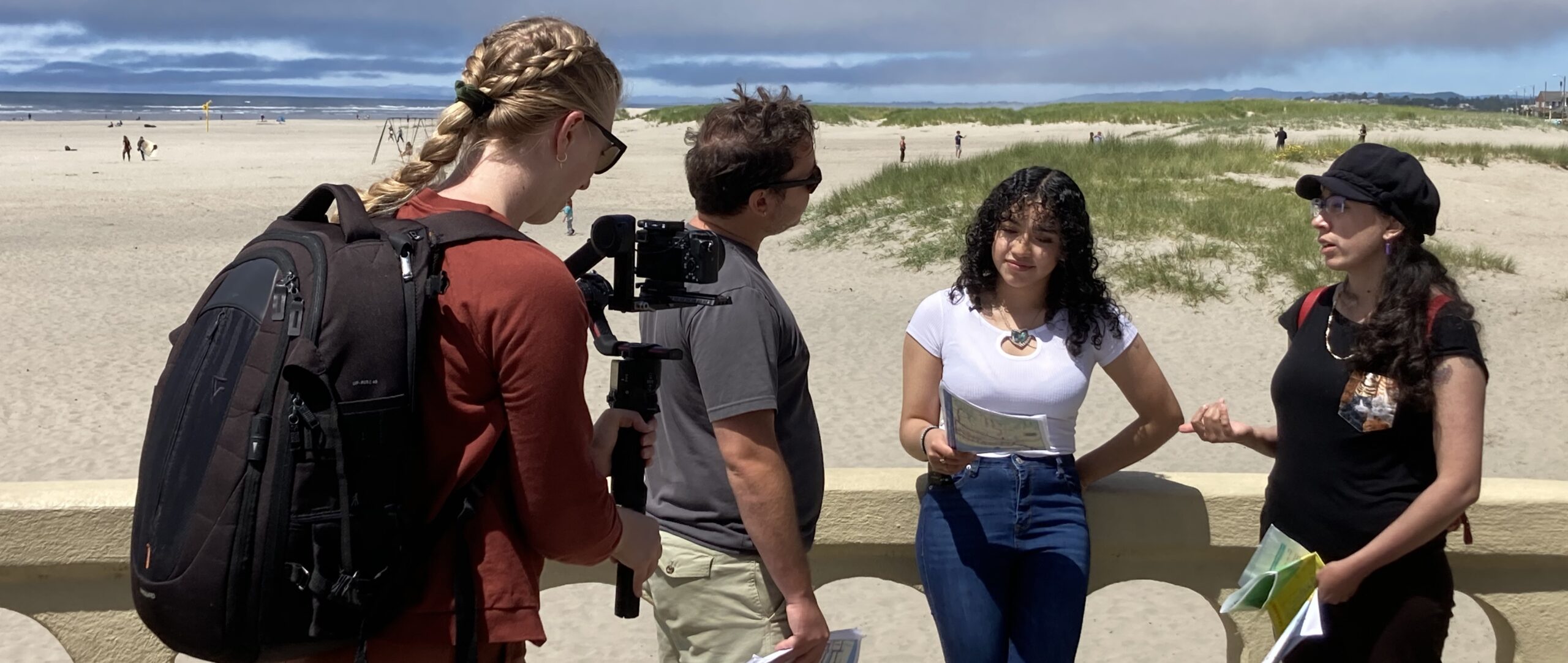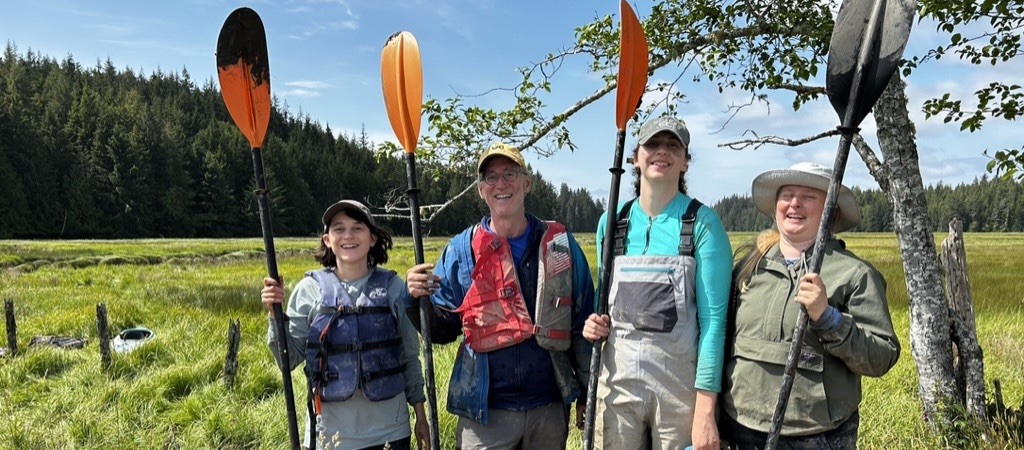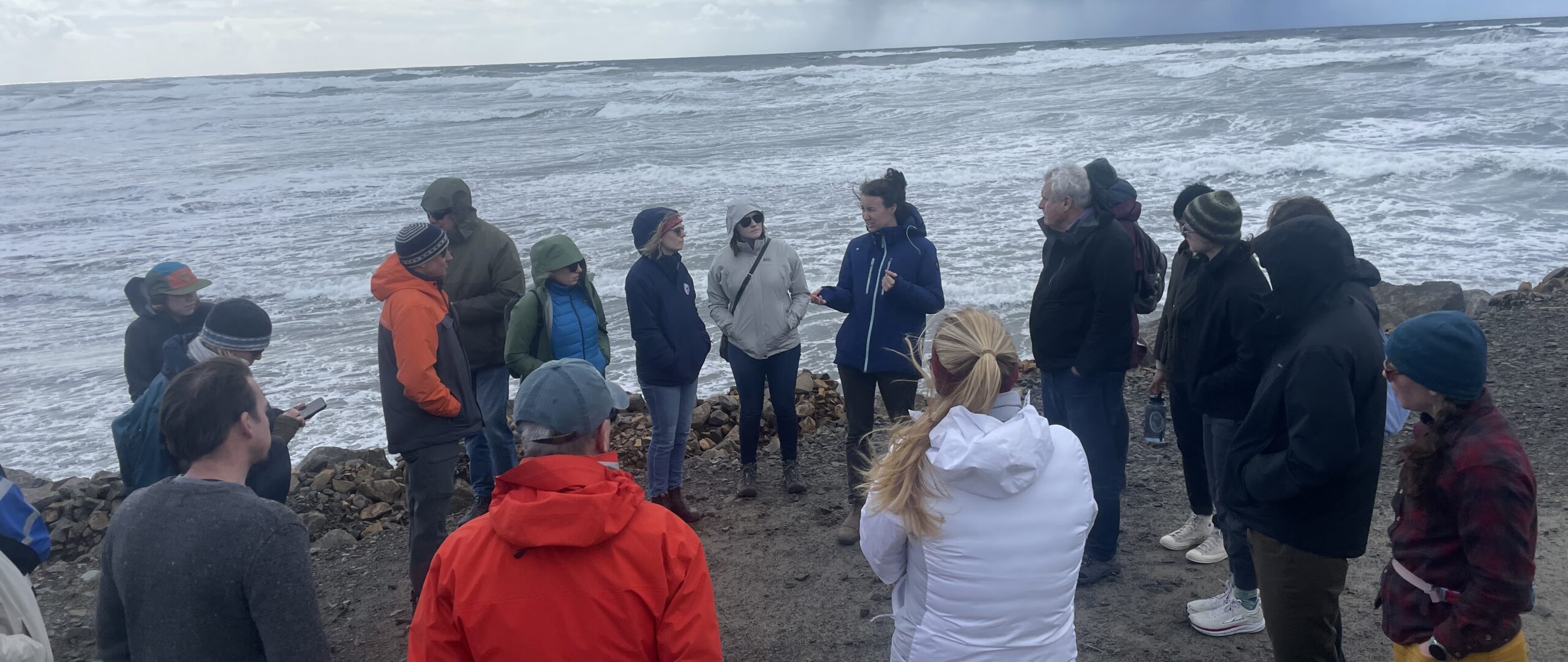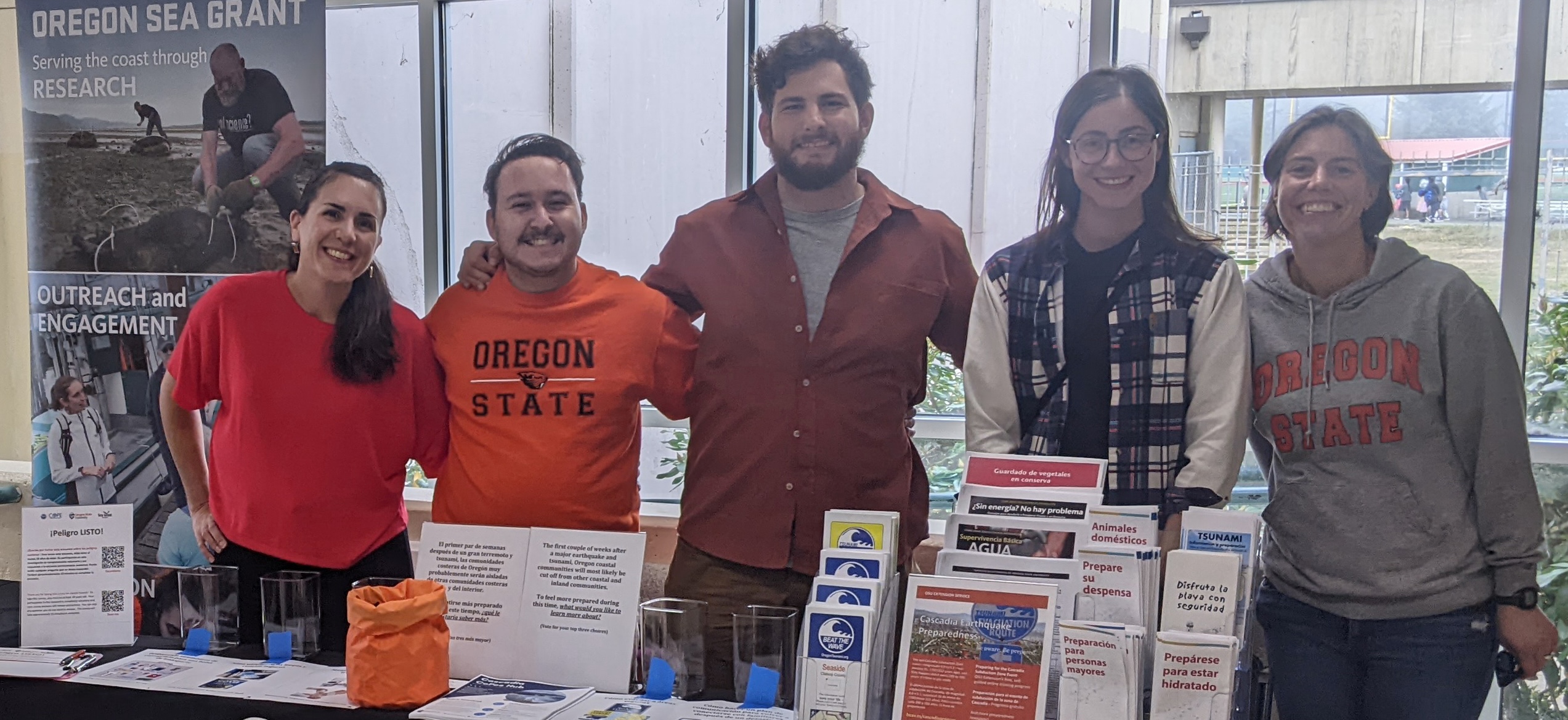Helping Pacific Northwest coastal communities prepare and adapt to coastal hazards through research and community engagement
With inextricably linked tectonic and climate-driven coastal hazards, Cascadia provides a unique opportunity for the study of local coastal changes spanning time scales from minutes to millennia, reflecting complex and locally-specific layering of impacts from chronic and acute hazards. Research teams are studying a host of coastal issues including earthquakes, landslides, tsunamis, sea level rise, flooding, and coastal change.
Tectonic Geohazard sources and integrated probabilistic modeling
Team 1
exposure to inundation and Coastal Change Hazards
Team 2
Community Adaptive Capacity
Team 3
broadening participation and inclusive STEAM Education
Team 4
community engagement and co-production of coastal hazard knowledge
Team 5

Collaboratories
Collaboratories (in blue) are main areas where Hub members work on coastal hazards and resilience with community partners. They are initial laboratories for in-depth, equity-focused, community-engaged study of localized coastal issues.
Collaboratories are varied in geography, geology, ecology, and community characteristics. By honoring long-term relationships and creating new partnerships, Cascadia CoPes Hub work is advancing convergent hazard research and enhancing regional resilience.
